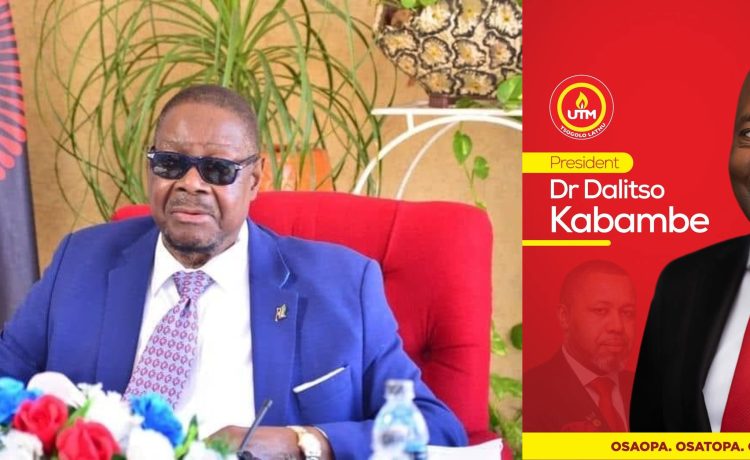As Malawi counts down to the critical 16 September 2025 general elections, speculation continues to swirl about a possible electoral alliance between the Democratic Progressive Party (DPP) and UTM. But one of the country’s most respected political analysts, Lyson Sibande, has poured cold water on the rumours — calling the idea “politically illogical and practically impossible.”
Writing on his Facebook page, Sibande argues that any form of alliance where UTM leads the ticket, particularly with Dr. Kabambe as a joint candidate, would be the beginning of the end for the DPP.
“Politics is about power and survival,” he writes. “And this alliance would deny DPP both. Kabambe would rise to the presidency, consolidate power under UTM, and clean house — removing DPP figures to prove that his government is fresh and untainted.”
He adds that some DPP figures could even face arrest or political extinction, as Kabambe would work to distance his administration from any perception of inherited corruption.
Sibande draws comparisons to the 2005–2009 UDF-Bingu saga, where the United Democratic Front (UDF) lost control of a government it helped elect — watching helplessly as Bingu wa Mutharika charted his own path. “Once the crocodile crosses the river,” Sibande warns, “it forgets the one who helped it swim.”
From a numbers standpoint, the DPP remains stronger than UTM. Even in a worst-case scenario, where MCP fails to secure the 50%+1 threshold, DPP still stands a chance in a run-off. UTM, Sibande argues, cannot even finish second.
“It’s unthinkable that DPP would surrender candidacy to UTM,” he states. “That would be the same as choosing the death of the party and its politburo.”
Sibande goes further to say that even if APM (Peter Mutharika) is physically unable to campaign due to age or health, DPP would rather lose alone than hand power to UTM. “They would drag the old man to the podium once or twice if they have to,” he says, “but never hand over the torch to a junior partner.”
He concludes with a sharp prediction: a DPP–UTM alliance will not happen. Not because the two parties don’t need votes, but because, as he puts it, “no one builds a house on sand — and no wise man plants his seed in another man’s field.”
The analysis reflects growing suspicion among DPP supporters that aligning with UTM — a party that hasn’t managed a second-place finish since 2019 — would be strategic suicide dressed as unity.
With just two months to go before the election, Sibande’s commentary may not just influence party insiders, but could also shape public expectations as the alliance drama unfolds — or fails to.













